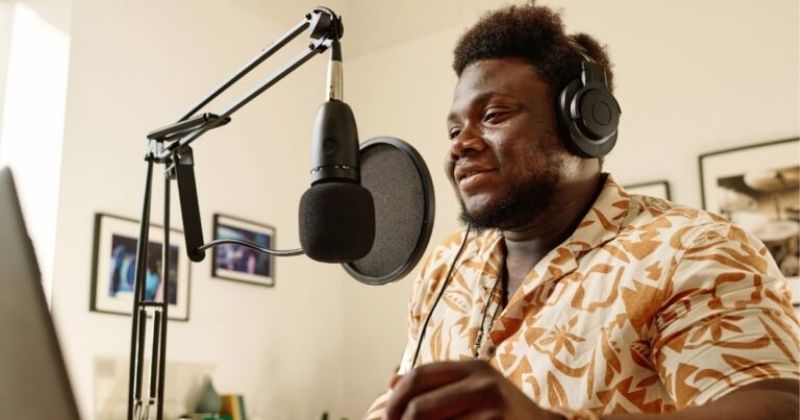
Few industries spark as much interest and excitement as the entertainment industry. In particular, radio has been a popular medium for decades, with many people aspiring to become radio presenters. However, one question often asked by those considering a career in radio is how much money they can earn in this profession.
Key Takeaways
- Career Opportunities and Income: Radio presenting offers a diverse range of opportunities across commercial, community, and public broadcasting sectors. Salaries vary widely based on experience, the popularity and size of the radio station, and the geographical location.
- Factors Influencing Salary: Key factors affecting income include a presenter’s experience and expertise, the size and reach of the radio station, the specific audience demographics, and the format and time slot of the show.
- Additional Income Streams: Besides their regular salaries, radio presenters can supplement their income through voice-over work, hosting events, endorsements, and creating digital content like podcasts, which can significantly enhance their earnings.
Understanding the Radio Presenter Profession in South Africa
Simply put, a radio presenter is an on-air personality responsible for delivering engaging and entertaining content to listeners during a specific time slot. Radio presenters must inform and entertain their audience while adhering to any station programming guidelines and regulations. In addition, they may be required to undertake administrative tasks such as researching and preparing their show content, collecting listener feedback, and producing promotional material for the station.
Radio presenters are often the voice of the station and the first point of contact for listeners. They must be able to connect with their audience and keep them engaged throughout their show. This requires a unique set of skills that not everyone possesses.

Required Skills and Qualifications
While many radio presenters might have started their careers because of their love for music, actual on-air responsibilities require a set of specific skills, including:
- Clear verbal communication
- Presentation and interviewing skills
- Interpersonal skills
- Ability to work under pressure
- Problem-solving skills
- Attention to detail
- Basic knowledge of technical equipment
Radio presenters must be able to think on their feet and react quickly to any situation that may arise during their show. They must also be able to communicate effectively with their co-hosts, guests, and listeners.
Useful experience for radio presenters includes:
- public speaking
- journalism
- sales and marketing
- drama or speech training
- any work in the broadcasting industry.
There is no academic qualification required to be a radio presenter, but many institutions offer courses in radio and broadcasting. These courses can provide valuable training and experience for aspiring radio presenters.
The South African Radio Industry Landscape
The South African radio industry is a diverse and vibrant industry that caters to a wide range of listeners. The industry is divided into various categories, such as talk radio, music radio, community radio, and public broadcasting services. Each category serves a specific audience and has its own unique set of challenges and opportunities.
Commercial radio stations are the most common type of radio station in South Africa. These stations generate revenue by selling advertising space to businesses and organizations. They employ the majority of radio presenters in the country.
Community radio stations are non-profit organizations that are run by volunteers. They serve specific communities and provide a platform for local voices to be heard. These stations often rely on donations and grants to stay on air.
Public broadcasting services are funded by the government and are responsible for providing impartial and informative programming to the public. They aim to provide a diverse range of programming that reflects the country’s cultural and linguistic diversity.
For radio presenters who travel frequently for shows or events, having a reliable car is essential. But timing is key to making the most of your purchase. Discover the best time to buy a car to ensure you get the best deal, from discounts to financing options.

Factors Influencing Radio Presenter Salaries
There are several factors that influence the salary of radio presenters in South Africa, including:
Experience and Expertise
Experience and expertise are crucial factors in determining a radio presenter’s salary. As with most professions, the more experience and success someone has in their field, the higher their earning power. New radio presenters can expect to start on a lower salary, while those with years of experience and a strong track record can negotiate a higher salary.
However, it’s not just about the number of years a radio presenter has been in the industry. The type of experience they have can also play a role in determining their salary. For example, a radio presenter who has worked in both commercial and community radio might be seen as more versatile and valuable, and therefore command a higher salary.
Radio Station Size and Popularity
Radio station size and popularity can also have an impact on radio presenter salaries. Radio presenters who work at larger stations with a wider audience reach tend to command higher salaries than those at smaller stations with a smaller listenership.
However, it’s not just about the size of the station. The type of audience the station attracts can also be a factor. For example, a radio presenter who works at a station that targets a high-income audience might be paid more because advertisers are willing to pay a premium to reach that demographic.
Geographical Location
The city and region in which a radio station operates can also influence the salary of radio presenters. For example, radio presenters working in Johannesburg and other major metropolitan areas often earn more compared to those in smaller towns and cities.
However, the cost of living in that area also needs to be taken into account. For example, a radio presenter who works in Johannesburg might earn more than one who works in a smaller town, but their higher salary might be offset by the higher cost of living in Johannesburg.
Show Format and Time Slot
The format and time slot of a radio presenter’s show can also impact their earnings. Radio presenters who have more challenging time slots, such as early morning or late night, might be paid more because of the work required to fill those hours.
The format of the show can also be a factor. For example, a radio presenter who hosts a popular music show might be paid more than one who hosts a talk show, because the music show is likely to attract more listeners and generate more revenue for the station.
There are many factors that can influence the salary of a radio presenter in South Africa. While experience and expertise are important, other factors such as the size and popularity of the station, geographical location, and show format and time slot can also play a significant role.
» Find out more: What Do Journalists Make?

Average Radio Presenter Salaries in South Africa
Radio presenting is a highly competitive and sought-after career in South Africa. With the rise of digital media, radio remains a popular medium for news, entertainment, and music. Like any other profession, salaries for radio presenters vary depending on experience, location, and the radio station they work for.
Entry-Level Radio Presenter Salaries
Entry-level radio presenters in South Africa can expect to earn between R5,000 and R15,000 per month. These presenters usually have limited experience in the industry and are starting out in their careers. They may work on smaller radio stations or as part-time presenters on larger stations. Entry-level presenters are responsible for hosting short segments, reading the news, and conducting interviews.
It’s important to note that entry-level radio presenters often work long hours and irregular shifts, including early mornings, late nights, and weekends. They must also be adaptable and able to work under pressure, as radio is a fast-paced and dynamic industry.
Mid-Level Radio Presenter Salaries
Mid-level radio presenters with several years of experience can earn between R15,000 and R25,000 per month. These presenters have built up a good track record and can handle more complex programming formats. They may have their own shows or co-host with other presenters. Mid-level presenters are responsible for creating content, conducting in-depth interviews, and engaging with their audience.
Mid-level radio presenters may also have additional responsibilities, such as producing and editing content, writing scripts, and managing social media accounts. They must be able to work collaboratively with other team members, including producers, sound engineers, and other presenters.
Senior-Level Radio Presenter Salaries
Senior-level radio presenters with over a decade of experience can expect to earn between R25,000 and R50,000 per month. These presenters typically work at larger radio stations and have developed relationships with sponsors and advertisers to help generate revenue for the station. They may also have their own production companies or work as consultants for other media outlets.
Senior-level radio presenters are responsible for creating and executing programming strategies, managing budgets, and overseeing a team of presenters and producers. They must also be able to adapt to changing technologies and platforms, including podcasting and live streaming.
Comparing Salaries Across Different Radio Stations
Salaries can also vary widely depending on the radio station that a presenter works for. Commercial radio stations tend to pay the most, with public broadcasting services paying the least. However, public broadcasting services often offer more job security and opportunities for career advancement.
It’s important for radio presenters to research different radio stations and their salaries before accepting a job offer. They should also consider factors such as the station’s audience demographics, programming formats, and company culture.
Effective debt management is crucial for anyone looking to maintain financial stability on a fluctuating income, which can be the case for some radio presenters depending on their contracts and show success. Consider exploring various debt management plans that can help in organizing and paying off debts more efficiently.
Salary Comparison by Geographical Location
Salaries for radio presenters can vary significantly depending on the geographical location within South Africa. Here are the salary ranges in three specific regions:
| Region | Salary Range per Month | Cost of Living | Media Market Size |
|---|---|---|---|
| Western Cape | R12,000 – R36,000 | High | Large |
| Kwazulu-Natal | R10,000 – R30,000 | Moderate | Medium |
| Mpumalanga | R8,000 – R25,000 | Low | Small |
Notes:
- Western Cape: This region has a high cost of living, especially in Cape Town. The media market is vibrant with numerous commercial and community radio stations.
- Kwazulu-Natal: The cost of living is moderate. The region has a diverse media landscape with both urban and rural influences impacting salary.
- Mpumalanga: Characterized by a lower cost of living and a smaller media market, salaries in this region are generally lower.
About Arcadia Finance
Easily obtain your loan through Arcadia Finance. Application is free, and you have the choice of selecting from 19 reliable lenders. Each lender complies with the regulations set by the National Credit Regulator in South Africa.

Additional Income Opportunities for Radio Presenters
Radio presenting can be a rewarding and exciting career, but it can also be financially challenging. Fortunately, there are several ways for radio presenters to supplement their income and earn extra money.
Voice-Over Work
Voice-over work is a great way for radio presenters to earn extra income. Voice-over work involves recording voice-overs for adverts, audiobooks, and corporate videos. This type of work typically pays a fixed fee per project or on an hourly basis, in addition to the presenter’s regular salary. Voice-over work can be done in a studio or from home, making it a flexible option for radio presenters.
Radio presenters are well-suited for voice-over work because they have experience using their voice to engage and entertain audiences. They are also skilled at reading scripts and delivering information in a clear and concise manner.
Hosting Events and Functions
Radio presenters may be invited to host events and functions outside of their regular on-air work. These events can include music concerts, corporate functions, and awards ceremonies. Hosting events can pay quite well, depending on the client and the nature of the event.
Hosting events requires excellent public speaking skills, as well as the ability to engage and entertain a live audience. Radio presenters are well-suited for this type of work because they are experienced in speaking to large groups of people and keeping them engaged.
Endorsements and Sponsorships
Radio presenters with a large following can earn money by endorsing products and services. Endorsements and sponsorships involve promoting products or services to a presenter’s audience. This may involve attending product launches, speaking to the media, and sharing sponsored posts on social media.
Endorsements and sponsorships can be quite lucrative for radio presenters, particularly if they are well known and respected in the industry. However, it is important for presenters to only endorse products and services that they truly believe in, in order to maintain their credibility with their audience.
Podcasting and Other Digital Platforms
Radio presenters can leverage their on-air success by creating podcasts and other content for digital platforms, such as YouTube. These platforms provide an additional income stream and can be used to build a broader audience base.
Podcasting and other digital platforms allow radio presenters to create content that is more niche or specific than what they might do on their regular radio show. This can help them attract a dedicated following and monetize their content through advertising or sponsorships.
There are many ways for radio presenters to supplement their income and earn extra money. By exploring these additional income opportunities, radio presenters can build a more secure financial future and continue to pursue their passion for radio presenting.
Many radio presenters enjoy the perk of flexible schedules, which might allow for more travel. However, it’s important to consider whether taking on debt for vacations makes sense. Our exploration of whether vacations are worth the debt can help you weigh the benefits of travel against its financial impact.
Final Thoughts
The radio presenter profession in South Africa is an exciting and rewarding career path with many opportunities for growth and income. Salaries can vary widely depending on factors such as experience, geographical location, station size and popularity, and show format and time slot. With the right skills, experience, and network, radio presenters can earn a respectable income and enjoy a fulfilling career in the industry.
Frequently Asked Questions
The salary of radio presenters in South Africa can vary significantly based on factors such as experience, the size of the radio station, and location. On average, salaries can range from R120,000 to R500,000 per year. High-profile presenters in major urban centers can earn significantly more, especially if they have a large audience and engage in additional activities like endorsements.
Becoming a radio presenter typically involves a combination of education, experience, and networking. Many presenters have a background in media, communications, or journalism, which can be obtained through university courses or specialized media training institutions. Gaining experience through internships or volunteering at radio stations is highly beneficial. Networking with industry professionals and creating a demo tape of your broadcasting abilities can also help you enter the field.
Globally, names like Howard Stern are often mentioned as some of the highest-paid radio presenters due to their massive audiences and lucrative contracts. In South Africa, the top-paid presenters are generally those who work for major radio stations in big cities like Johannesburg and Cape Town, though specific earnings are rarely disclosed publicly.
The payment for talking on the radio, as mentioned, varies widely. It depends on the radio station’s budget, the show’s popularity, and the presenter’s experience. In addition to a base salary, many presenters can earn extra income through sponsorships, advertisements, and public appearances. For entry-level positions, salaries might start from a modest point but can increase significantly with experience and audience reach.
While there is no strict educational requirement to become a radio presenter, having a qualification in broadcasting, journalism, communications, or media studies can be highly advantageous. Many universities and colleges in South Africa offer relevant courses that provide technical skills and theoretical knowledge pertinent to a career in radio. Additionally, hands-on experience, which can be gained through internships or working at community radio stations, is often crucial. Employers typically look for individuals with strong verbal communication skills, a good voice, and the ability to connect with and engage an audience.



